Restrictions continue to challenge hotel industry
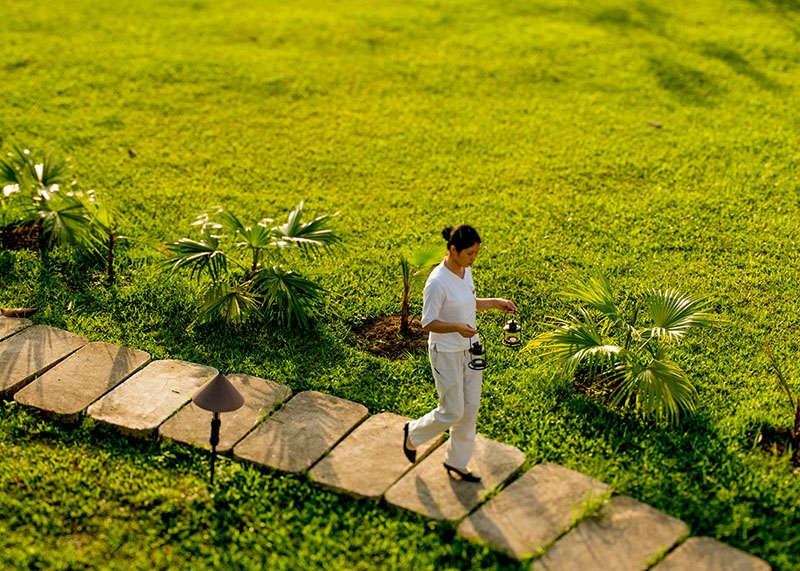 |
| Restrictions continue to challenge hotel industry |
Owning 14 hotel brands and nearly 6,000 properties around the world, InterContinental Hotels Group (IHG) is currently one of the 10 largest in the world. However, the pandemic has dealt a serious blow to the group after IHG announced a loss of around $153 million for 2020.
“Last year was the most challenging in our history, with COVID-19 heavily impacting demand across our industry. This year has begun with many of the same challenges. However, we see more meaningful progress towards recovery, lifted restrictions, and an acceleration in economic activity”, said Keith Barr, chief executive at IHG Hotels & Resorts.
In Vietnam, although there is yet no report on the business operations of the 13 IHG hotels – with more than half under the InterContinental brand – the decline in revenues likely was a result of booking channels like Agoda and Booking.com offering discounts of up to 40-50 per cent on room rates at famous resorts and hotels such as the InterContinental Danang Sun Peninsula Resort and InterContinental Hanoi Westlake.
The latter, although known as a 5-star hotel with the most beautiful location and architecture in Hanoi, has been in a state of loss for many years. Even before it was hit by the pandemic, the hotel’s poor business performance caused Malaysian owner Berjaya Land Berhad (BHR) to quickly divest in 2019.
Such a negative situation also affected another BHR hotel – the Sheraton Hanoi. The hotel generated total revenues of $19.7 million in 2019 due to growth in the food and beverage business. However, the revenue generated was still far behind the $44 million earned in 2007. In 2020, Sheraton Hanoi’s revenues plummeted severely.
Big brands engulfed
IHG is not the only victim of the pandemic, as a series of other large hotel groups such as Accor, Marriott, TUI Group, and Hilton has been in the same situation.
Within just three months of the outbreak in Europe in the middle of last year, the travel slump wiped out TUI’s revenues and strained its balance sheet as it burned through around $705 million a month to maintain operations. The group also considered selling parts of its 49-per-cent stake in the Spanish hotel chain TUI Hotels & Resorts to pay off debts after reporting an operating loss of $1.3 billion in the third quarter of last year.
TUI Group meanwhile confirmed it will close a further 48 shops across the UK. The move follows the closure of 166 TUI shops announced in July. which affected up to 900 jobs.
Hilton Hotels also faced an unprecedented crisis in its 101-year history when it was forced to lay off 22 per cent of its global corporate staff last year. Its rivals, including Marriott and Hyatt, suffered the same fate as Hyatt had to cut 1,300 employees worldwide, while the representatives of the world’s largest hotel system Marriott stated that the effect of the pandemic on business operations is much more serious than both the terrorist attacks on the US in 2001 and the 2008 financial crisis combined.
Revenues for Accor per available room at its 4,200 active hotels went down 60 per cent in the first half of 2020, resulting in a net loss of $1.75 billion for the entire system as of last August. According to Sébastien Bazin, Accor chairman and CEO, it will not be until the end of 2021 or early 2022 that the group’s operations return to the level of 2019.
In Vietnam, Accor is currently the biggest international hotel operator with a total of 40 hotels, and the group plans to add about 10 more hotels. Although the group’s revenue plummeted, representatives of Accor Vietnam confirmed most of their hotels are still operating as usual in the country, while big hotels under Accor’s management such as as Hôtel de la Couple in Sapa, Novotel Saigon, and Sofitel Legend Metropole Hanoi declined to comment on the issue.
Hotel management groups such as Marriott, InterContinental, Accor, Hyatt, and Hilton now almost no longer own hotels, with their revenues mainly based on franchising and management contracts. As a result, when franchised hotels’ revenue declines, these groups’ revenues will inevitably decrease. In the context that the tourism market has not been recovered and the number of customers is still limited due to travel restrictions, these corporations are struggling to maintain their operations until the tourism market returns to normal.
New ways amid pandemic
Pandanus Resort in Mui Ne, Phan Thiet, used to be quite profitable for over a decade, but when the pandemic hit and the country closed to international tourism, occupancy rates of the resort dropped sharply from 70 to 27 per cent in 2020. It is expected that the difficult situation will continue until the end of 2021, but representatives of Pandanus Resort said they never considered giving up or closing the hotel. Even during the April lockdown, it had guests who had been in the resort before the government ordered the lockdown, so they stayed until after it ended.
Therefore, to maintain operations, the resort is forced to cut costs, from working schedules of employees to saving other expenses. “We also put many of our units out of service to save on electricity and housekeeping costs. All department managers were encouraged to find other ways to cut costs, so many small measures were implemented, from recycling paper in accounting to using fans instead of air conditioners whenever possible,” said Steve Raymond, business development manager of Pandanus Resort. “The consensus is that the COVID-19 pandemic will end and tourism to Vietnam will not only recover but our destination will develop further.”
When there was a problem, one of the first solutions that most hotels applied in the first phase was a discount policy to attract tourists. On online booking platforms, many international hotel brands have been offering unprecedented discounts. Room rates at JW Marriott Hotel Hanoi decreased from $270 per night to $139. InterContinental Hanoi Landmark72 also lowered its rates from $226 to $82 per night.
In Ho Chi Minh City, a series of 5-star hotels such as New World Saigon, Nikko Saigon, Caravelle Saigon, Sheraton Saigon Hotel & Towers, and Rex have been offering promotions of over 60 per cent, with incentives such as free cancellations, free breakfast, and discounts on hotel services such as restaurant, spa, and bar of up to 50 per cent.
However, as the wave of discounts created fierce competition in the market, some hotels chose not to use discounts. Instead, they focused on diversifying products and creating attractive experience packages combining luxury resorts with local tourism culture to promote the destinations.
Like other businesses, Silk Path Hotels & Resorts has been suffering losses over the past two years as the brand’s main source of tourists were foreigners. According to chief business officer Thuy Nguyen, COVID-19 has brought many experiences to Silk Path Hotels & Resorts, in which the two major changes were to become an isolation hotel and the new focus on the domestic market. “In such a context, we boldly opened Silk Path Grand Hue Hotel & Spa and achieved some unexpected success,” Thuy said.
One of the other examples of success thanks to diversified products and services and was a solution by Mövenpick Resort Cam Ranh in Khanh Hoa. Since Lunar New Year, Mövenpick performed well due to a variety of accommodation types, services, and facilities for family groups.
At present, the resort is running exciting packages focusing on families with many ‘edutainment’ activities for children. Also, the resort is planning to push more for business tourism in the upcoming months to promote Cam Ranh and Bai Dai beach as great destinations to organise team-building activities, gala dinners at the beach, wedding ceremonies, as well as social events and gatherings.
General manager at Mövenpick Resort Cam Ranh Brice Borin said, “We are promoting travel within Vietnam with special room packages via social media channels. This is an effective way to communicate with the masses and targeted customer segments. We are working on creating packages within and around our hotels and resorts with special offers around dining, wellness, exploration, and more because we know people are looking to enjoy experiential travels.”
| Chris Hallett - Area director, Sales & Marketing IHG South Vietnam and Laos
The pandemic has impacted hotel occupancy with limited inbound travel. In Vietnam and at InterContinental Saigon, for example, we are fortunate to have multiple revenue streams in our hotel that are largely intact and upon which we have focused our energy, such as domestic corporate and leisure, long stay travel, restaurant services, as well as catering and events. Multiple external factors will determine hotel occupancy rates in 2021, so it is difficult to give exact numbers. Nevertheless, we will open our premises and welcome guests. To resolve the losses, we should now be focused on recovery and reopening of borders. We congratulate the government on the success of dealing with the pandemic to this point, which puts Vietnam in a strong position to leverage future demand. Therefore, the current focus should be on maximising a safe reopening, determining the vaccination process in the hospitality sector, and targeting commercial campaigns to first returning markets. At InterContinental Saigon, we are focused on our guests and their needs, and we aim to never lose sight of this fact. Through the pandemic, we have focused on cross-training, upskilling, and building the leadership competencies of our colleagues. We are of course in constant search of efficiencies through the business – but always viewed at the guest and brand impact as the determining factor. Marc Selinger Hotel manager Meliá Hanoi
The pandemic has set the hotel industry back. Our occupancy dropped more than 50 per cent compared to 2019 and the rate in 2021 is not noticeably better as we still suffer from the impact of the health crisis. However, we are gradually getting back on track with our MICE business, as we had almost all our function rooms occupied. Unfortunately, Meliá Hanoi also suffered losses in 2020 and the first quarter of 2021 like other 5-star hotels in Vietnam. However, we consider this is an opportunity for us to invest in renovation and the improvement of our products and services to keep them at the best possible level. We started our renovation in May last year and expect to finish everything by June, with new facilities in the meeting area, a recreation floor, a restaurant, and a public area. Travel and hotel professionals are just beginning to restart their activities after the unprecedented effects of almost zero global demand. With the quick vaccinations worldwide, we believe that the hotel business will be improved in 2022, though it might remain very challenging. For the time being, we still focus on the domestic tourism and MICE business and strictly follow our safety programme to guarantee the highest standards for our guests and employees. Besides this, we have already restructured our labour force to adapt to the business situation. Pieter van der Hoeven-Regional general manager Indochina, Minor Hotels
We have been fortunate in that our business has remained sustainable throughout 2020 and our hotels have continued to keep their doors open. We saw an encouraging number of domestic visitors and, increasingly, travellers arriving by car. After the February outbreak was so quickly brought under control, we have seen good traction from the domestic market once again. The fundamental aspects of the tourism industry in Vietnam are still very much in place and will undoubtedly return to full capacity once international borders re-open and we see travellers visiting Vietnam from overseas again. There is a strong long-term future for hospitality in Vietnam and, as a hotel group, we are also committed to our investment in the country with additional hotels in the pipeline. All Anantara and Avani hotels have implemented dedicated hygiene protocols to ensure additional health and safety measures. Both Anantara Stay with Peace of Mind and AvaniSHIELD offer initiatives throughout each hotel with heightened hygiene and sanitisation standards. Our people are our greatest assets and, as such, we have made no redundancies throughout the pandemic. Our focus remains on the future as a hospitality company and continued investment into the country’s tourism infrastructure. Sunny Ghaiee Executive assistant manager Hanoi Daewoo Hotel
COVID-19 has brought serious losses to hotels throughout the world. However, we’ve seen a progressive occupancy since domestic travellers started coming back to Hanoi. We expect better occupancy rates in 2021 as various vaccines are now available across the world. Many events have been planned by the government to promote Hanoi and Vietnam as safe destinations. All challenges of this “new normal” have presented some good opportunities to take the hotel towards the next level. Hanoi Daewoo Hotel has invested in upgrading food and beverage outlets, and last year, we successfully launched two new restaurants – the Ngan Dinh Hanoi and Duc Bao Gartenstadt. The renovation project continues with other outlets. This period is considered the ideal time to invest in products and soft skills to bring Vietnamese hospitality to a higher international standard. We are lucky that there’s incredible support from the leaders as well as an amazing team spirit at Hanoi Daewoo Hotel. Everyone wants the best for the guests, the associates, and the business. There have been no job losses in Hanoi Daewoo to date. The management team believes that we should stand by associates during these difficult times. Different measures have been implemented to control costs while not compromising on standards and other delights. Nguyen Quoc Toan General manager Pao’s Sapa Leisure
Pao’s Sapa Leisure has suffered a year of a strong decline in the number of booked rooms and revenue. We have no more source of international tourists while a lot of domestic bookings have been cancelled. Our hotel also was suspended for several months to ensure the safety of guests and staff. After the pandemic was controlled again in the country, domestic tourists were still concerned so we only received a few bookings. Our occupancy rate in the first quarter of 2021, therefore, fell sharply, with only 60 per cent of the last year’s rate booked. However, with the heavy losses of many huge hospitality brands – depending on the location – we will have specific solutions for it. We may close it or transform our premises for other purposes if the hotel remains closed for a long time. But we also can take this opportunity to renovate or upgrade our hotel and prepare for the next wave of tourists. Over the past year, most of our regular and potential clients have reduced their requirements, so we are waiting for the blooming waves in the next months when Vietnam continues to rollout vaccines rapidly. We have received many more bookings for April and expect an eventful season this summer. Thus, we are eager to invest in upgrading the facilities. During the pandemic, our staff has been suffering from the hard conditions and the fear of unemployment. But we try our utmost to keep our family safe and share woves together to overcome all obstacles and wait for the brighter times this year. Andrew Kim General manager Pan Pacific Hanoi
Business and leisure travel will return at different paces, as will domestic and international travel. The first quarter of 2021 was no different than 2020. However, if there is no more local transit, we assume there will be growth in domestic travel. We assume the international border will remain closed until the end of the third quarter. If we are looking at the near future, selling one’s business property might not be a bad idea. But I strongly believe that we will travel again and reconnect again. By that time, travel will increase dramatically compared to before the pandemic. Once international travel is recovered, the property value will also hit another high. Our company has already applied a cost-containment plan including no new hiring, extending unpaid leave, and other initiatives. With revenue-driven sectors, we are more focused on the domestic market with events and restaurants. Garth Simmons CEO Southeast Asia Accor Hotels
Thanks to the Vietnamese government’s public health measures, most of our hotels are still operating as usual. This is also a great opportunity for us to shift our focus to domestic travel, and the demand from this market has proven to be a driving force for the economy as well as the hospitality industry. With a strong development pipeline for the next five years, we are confident in the long-term future of tourism and will go from 40 hotels to at least 50 in the country. Vietnam remains a country with huge potential in the coming years and we are introducing some exciting new brands, especially in the luxury and lifestyle sector. In times of crises, we understand the best way to overcome the restrictions of international travel is by understanding the local culture and serving the domestic market. Accor’s strategy moving forward is to bring our management teams closer to hotels and country leaders so we can gain insights on travel and hospitality trends in each market. This will help us to deliver campaigns that allow our hotels to serve domestic guests with more tailored initiatives. We are also working closely with business partners in Vietnam to discover new destinations across the country, bringing exciting brands and providing professional hospitality training and job opportunities for a large number of new colleagues in remote destinations. Safety will be a key factor in giving people the confidence to travel, and Accor has introduced a strict hygiene and cleanliness protocol, which provides our guests with trust and assurance when they travel, allowing them to feel healthy, safe, and confident throughout their stay. It includes enhanced sanitation processes, safety training for our staff, safe distancing measures where needed, and the strictest adherence to local government regulations. We are also the only hotel group to offer our guests free access to telemedical consultations when they stay with us, through a partnership with AXA that can link our guests with a vast network of accredited medical specialists. We have strong faith in the Vietnamese government, especially with the arrival of the first vaccines to Vietnam last month. This has a significant role in our development as it will gradually remove barriers to domestic travels. |
What the stars mean:
★ Poor ★ ★ Promising ★★★ Good ★★★★ Very good ★★★★★ Exceptional
 Tag:
Tag:
Related Contents
Latest News
More News
- Sheraton Phu Quoc rolls out Lunar New Year 2026 cultural and dining programme (February 11, 2026 | 09:00)
- Fairmont opens first Vietnam property in Hanoi (February 04, 2026 | 16:09)
- Marriott signs major deal to expand luxury hotel footprint in Vietnam (February 04, 2026 | 15:58)
- Welcome Year of the Horse at Four Seasons Resort The Nam Hai (January 30, 2026 | 16:18)
- The Grand Ho Tram to host the first-ever IBF convention in Southeast Asia (January 29, 2026 | 12:18)
- Danang Marriott ushers in Lunar New Year by the sea (January 28, 2026 | 11:42)
- Angsana and Dhawa Ho Tram offer a serene Lunar New Year retreat (January 23, 2026 | 23:38)
- Tides of Heritage: A Tet speciality at InterContinental Phu Quoc Long Beach (January 20, 2026 | 12:08)
- Muong Thanh launches Lunar New Year gifts inspired by tradition (January 16, 2026 | 16:41)
- The Grand Ho Tram seeks responsible entertainment with pilot casino access (January 16, 2026 | 10:56)

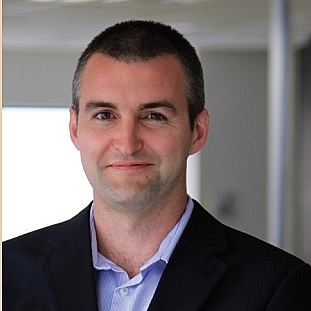
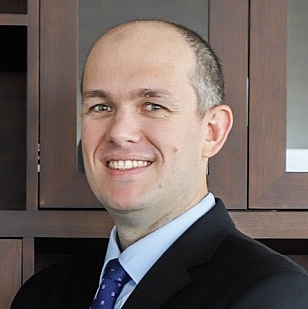
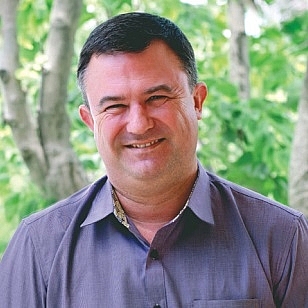
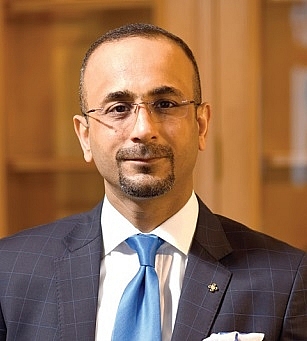























 Mobile Version
Mobile Version